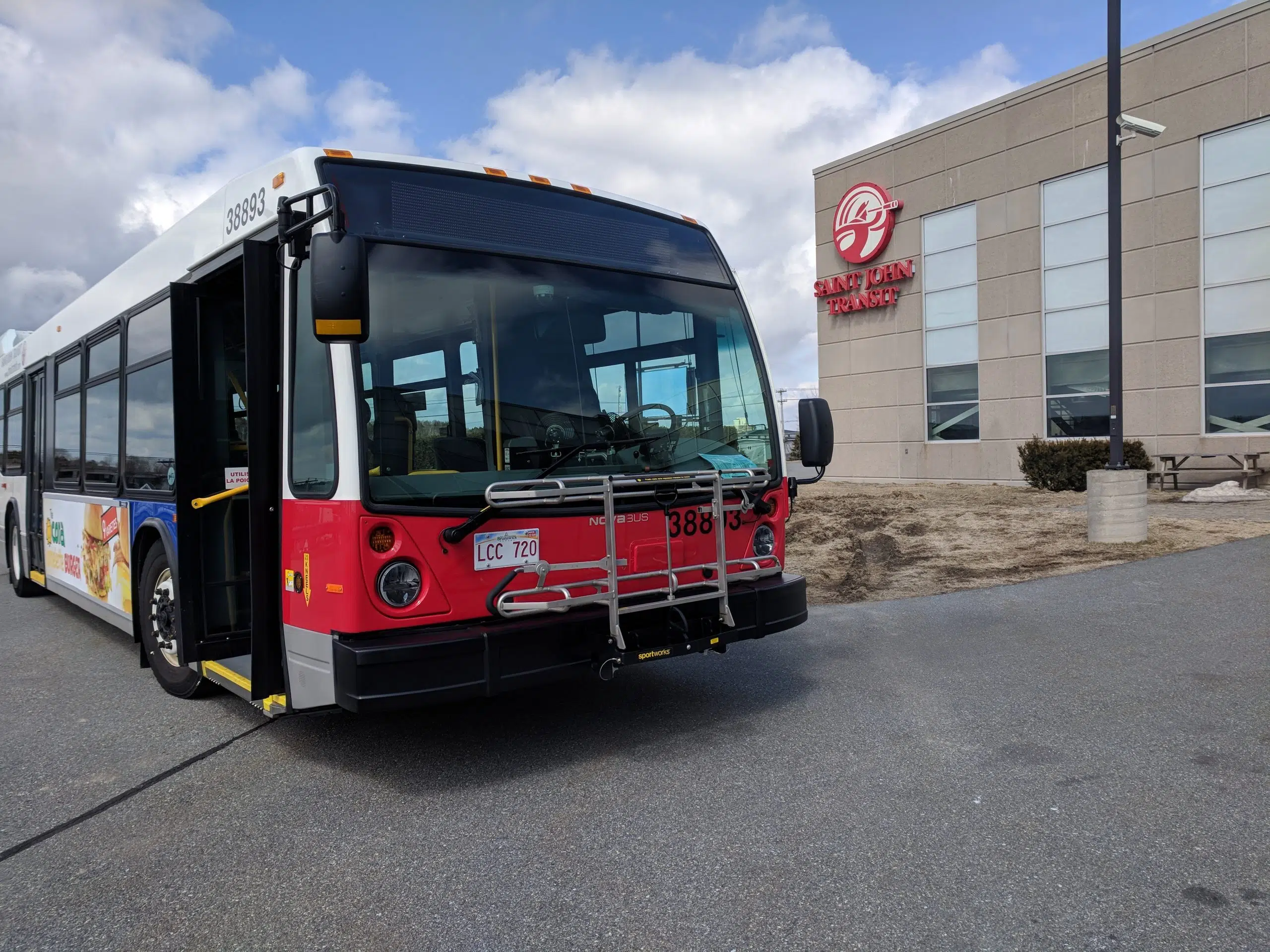Officials at Saint John Transit are considering upgrading part of their fleet with electric buses.
It comes as the city undergoes a transit redesign and looks to become carbon neutral by 2040.
Ian Fogan, director of transit, presented the plan to members of the city’s finance committee last week
“The city has recently completed a decarbonization study of our city fleet and transit, which will soon be coming to council,” said Fogan. “One of the recommendations from that, in order to reach that goal, is around electrification of the transit fleet.”
Committee members directed city staff to apply to a newly-announced federal program to help cover the costs.
The Zero Emission Transit Fund, valued at $2.75 billion over five years, is designed to help transit authorities switch to zero-emission vehicles.
Fogan said it would cost about $18.6 million over five years to purchase 24 electric buses and $3.98 million for the required charging stations, for a total of $22.58 million.
He said the federal program would cover 50 per cent of the costs, bringing the city’s total to just under $11.3 million.
“There’s no commitment with this,” Fogan said of the application. “This is just for us to get better information for the capital budgeting process when we come back with recommendations as a result of the funding application.”
Saint John Transit is reviewing its fleet requirements as part of a transformation plan that will see transit switch to a model of rapid, fixed-route and on-demand service.
According to a staff report, transit will shift sixteen 40-foot buses to smaller vehicles along with an overall reduction of six vehicles.
Under the current fleet replacement schedule, replacing transit buses would cost the city $13.5 million over the next five years. If the city secured federal funding for electric vehicles, its total bill would be $9.3 million.
“Through an analysis conducted by Wood Consulting … it has been determined that with a reduction in operating and maintenance cost associated with electric vehicles and the funding opportunity that currently exists, there is a cost savings overall to switch to electric transit,” said the report.
Staff are only recommending replacing vehicles that will reach the end of their lifecycle within the five-year timeframe of the federal program.




